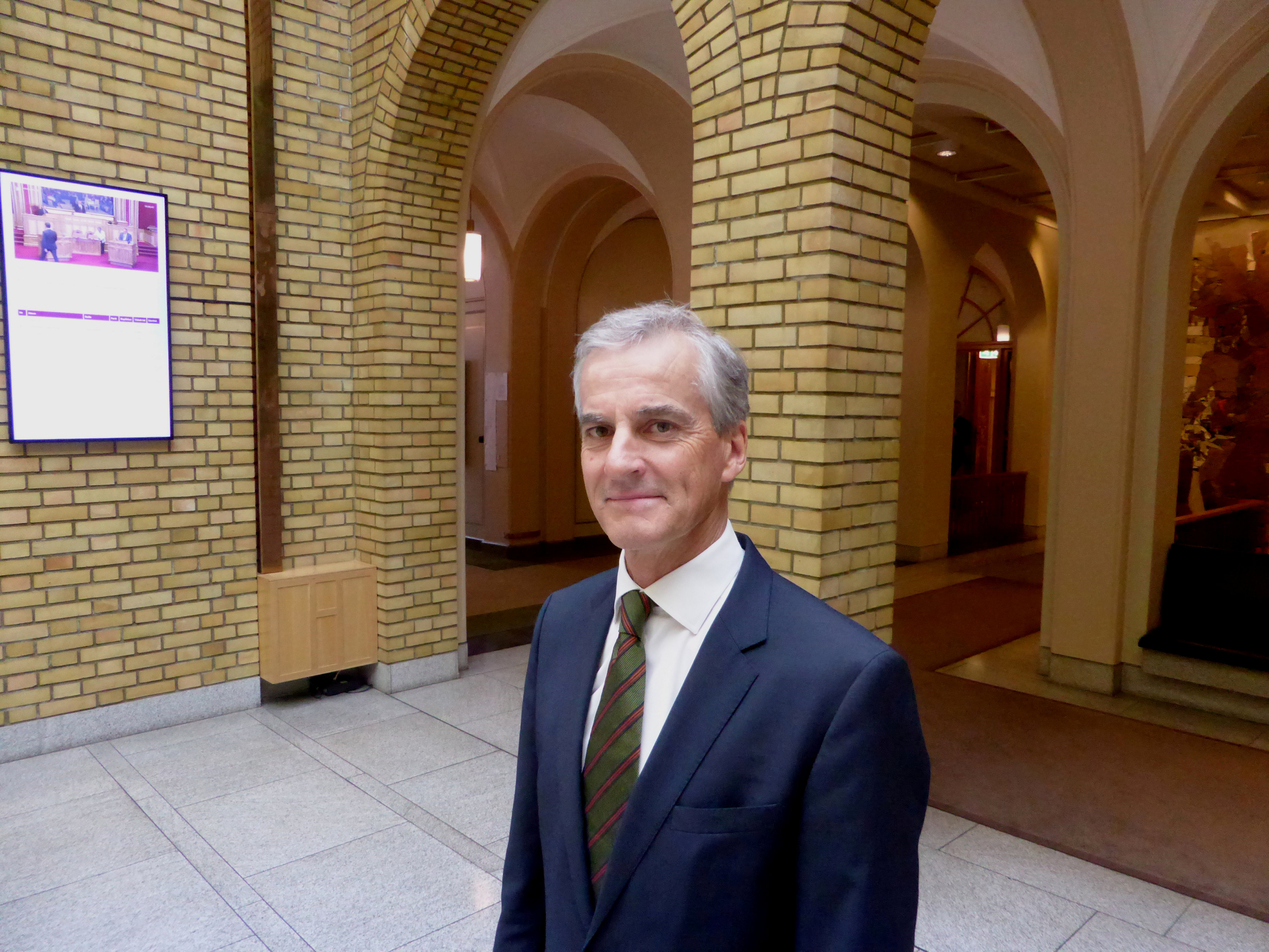The millionaire socialist who may be Norway’s next prime minister

OSLO — Norway’s next prime minister could be a man born into wealth and privilege who became the unlikely leader of the Labour Party, the political home of the working class.
Jonas Gahr Stoere, 57, hopes to replace Conservative Prime Minister Erna Solberg, 56, after a Sept. 11 parliamentary election. With the left and right neck-and-neck in the polls and many voters undecided, the race is too close to call.
If he wins, it would be a victory for a millionaire, whose background was once deemed an obstacle to his ambition to lead a party rooted in the struggle for workers’ rights.
Stoere got massive attention in the media in 2013 when he failed, apparently by accident, to raise the national flag outside his house on International Workers’ Day on May 1 – an important tradition in the labor movement.
“I have not grown up in the traditional working class and I cannot explain my background away. Like everyone else I’m the sum of my experiences,” he told the tabloid VG at the time.
With a net worth of 64.5 million Norwegian crowns ($8.3 million), media interest in Stoere’s investments has at times threatened to overshadow his campaign, leading him last week to divest stakes in a mutual fund that did not comply with the same ethical standards as the sovereign wealth fund.
He served as foreign minister and health minister in the two cabinets of his friend, prime minister Jens Stoltenberg, in 2005-2013, and became Labour Party leader when Stoltenberg was named NATO Secretary General.
In 2010, while foreign minister, Stoere helped broker a deal to delineate an Arctic offshore border between Norway and Russia that had been in dispute for four decades.
“Stoere was a very popular foreign minister, but has experienced problems as party leader,” Toril Aalberg, a professor of political science at the Norwegian University of Science and Technology in Trondheim told Reuters.
“While there is a greater degree of consensus in Norwegian foreign policy, there is a greater degree of disagreement in domestic policy matters.”
Francophile
The son of a shipbroker, Stoere credits his conversion to social democracy to his move to study in France where he was confronted with starker class differences.
“I learnt what kind of society I wanted to live in. In France, differences between people are large, larger than in Norway — between rich and poor, between those with education and those without, between city and countryside,” he wrote in a column for Norway’s ABC News website in June.
“In Norway, we have shaped a society where there are fewer differences. But we are not immune to this and this is not a given.”
He attended Paris’ prestigious Sciences Po university, became engaged in the movement to support Soviet dissidents, and traveled to the Soviet Union to provide supplies and support.
He organized a protest in support of Andrei Sakharov, then held in internal exile, persuading French star Yves Montand, a long-time Communist sympathizer, to deliver a letter to the Soviet embassy in Paris calling for the Nobel laureate’s freedom.
When he returned to Norway, Stoere worked closely with Norway’s first female prime minister, Gro Harlem Brundtland, known as the “mother of the nation” in Norway, first as an adviser and later a senior civil servant under several governments between 1989 and 1997.
From 1998 to 2000 he followed Brundtland to the World Health Organisation to serve as chief of staff to the new executive director. He was also Secretary General of the Norwegian Red Cross from 2003 to 2005.
Tightening oil spending
If Labour wins the Sept. 11 vote, it would spend less money from Norway’s near-trillion dollar sovereign wealth fund and instead raise taxes, arguing that the growth in oil revenue spending must slow.
“Sound public finances are critical for welfare and critical for productivity,” Stoere told Reuters in an interview in June.
Stoere also said he would be careful about allowing the sovereign wealth fund into new asset classes.
“Political risk is clearly one issue. Spreading the focus of the fund too much is another one,” he said.
To govern, Labour will need the support of the Centre Party, whose main support is in rural areas, with whom it shared power between 2005 and 2013.
But depending on the outcome of the vote, Stoere may be in need of the support of the far-left Red Party and would face demands from the small-but-growing Green Party about limiting the reach of Norway’s oil industry.
Stoere says he is adamant he would not accept the Green Party’s ultimatum of shutting down the industry but his position may be more difficult to defend if he needs their support.
“Forming a government is going to be difficult,” said Johannes Bergh, a political scientist at the Institute of Social Research in Oslo.
Additional reporting by Lefteris Karagiannopoulos in Oslo.